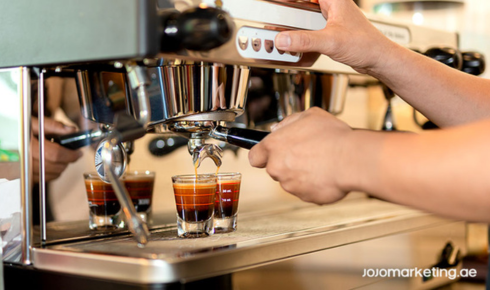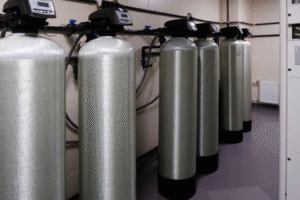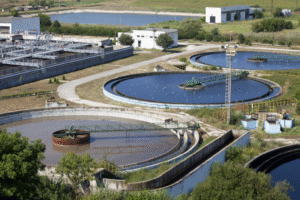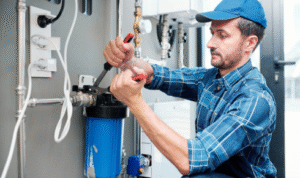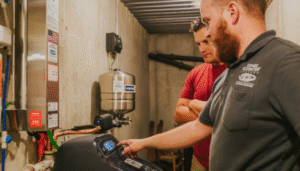Walk into any coffee shop in Austin, and you’ll notice something special. It’s not just the carefully crafted latte art or the smell of fresh beans grinding behind the counter. There’s a quiet attention to detail that runs deeper, right down to the water flowing through every espresso machine and drip brewer. More and more café owners are realizing that the secret to a perfect cup isn’t just the beans or the barista — it’s the water itself.
Water makes up about 98% of coffee. That means if the water isn’t right, nothing else will be either. A flat cappuccino or bitter drip brew often has less to do with the roast and more to do with what’s coming out of the tap. And in Austin, with its notoriously hard water, that’s a real challenge. For many, the solution is clear: specialized water purification for coffee shops Austin has become less of a luxury and more of a necessity.
Why Water Matters More Than You Think
Most people think about coffee in terms of beans: origin, roast, grind size. But those beans need a partner, and that partner is water. The minerals in water influence how flavors are extracted. Too many minerals, and the coffee tastes chalky, dull, or overly bitter. Too few, and you’re left with something weak and underwhelming.
Austin’s tap water, while safe to drink, contains a cocktail of minerals and impurities that can wreak havoc on both flavor and equipment. Anyone who has lived here knows how quickly limescale builds up on faucets or kettles. Now imagine that same build-up inside a café’s espresso machine — clogging pipes, burning out heating elements, and forcing expensive repairs.
Coffee shop owners have started to wise up. Rather than fight the water day after day, they’re installing tailored coffee shop water filtration Austin systems that strike a balance: removing contaminants without stripping away the natural minerals that help coffee shine.
The Barista’s Secret Weapon
Talk to a barista in a specialty café, and you’ll notice how much they geek out about the science of coffee. They’ll tell you about extraction percentages, bloom times, and flavor notes you didn’t think existed outside a wine tasting. But even the most skilled barista can’t outwit bad water.
The right filtration system levels the playing field. It ensures consistency, which is critical. A customer should be able to order a pour-over on Monday and come back Friday expecting the exact same cup. Without controlled water quality, that’s impossible.
For Austin cafés trying to stand out in a crowded scene, filtration has become a competitive advantage. The better the water, the more a café can showcase the unique personality of its beans — whether it’s a bright Ethiopian with citrus notes or a deep, chocolatey Colombian roast.
Beyond Coffee: Protecting the Business
This isn’t just about flavor, though. It’s about protecting the bottom line. Replacing a high-end espresso machine can cost thousands, sometimes tens of thousands, of dollars. Even smaller repairs eat into profits. And in an industry where margins are already razor-thin, few coffee shops can afford that kind of hit.
That’s why many owners now see filtration as an investment. Just like quality beans or well-trained staff, it pays for itself over time. By preventing limescale and mineral buildup, filtration keeps equipment running smoothly, extends its life, and reduces downtime. It also reassures customers. People today care about what they’re consuming, and when they know a café invests in cleaner water, it builds trust and loyalty.
Restaurants, too, are catching on. The same principles apply whether you’re brewing coffee, serving tea, or preparing food. Kitchens need reliable water quality to ensure flavors stay true and equipment holds up. In fact, whole-house systems for restaurant water treatment Austin are becoming just as common as those in coffee shops.
Finding the Right Fit for Austin Cafés
Not all filtration systems are created equal. Some cafés need reverse osmosis to strip water down to its cleanest form, while others benefit from systems that fine-tune mineral levels for optimum coffee flavor. The trick is finding a solution that matches Austin’s specific water profile.
Local providers who specialize in the hospitality industry often tailor systems to each shop’s needs. They test the water, evaluate equipment, and design setups that deliver consistency without overcomplicating daily operations. Because at the end of the day, baristas need something reliable and easy to maintain. They don’t want to spend hours tinkering with filters when they should be pulling shots.
The Bigger Picture: Sustainability and Community
Austin’s café culture has always been about more than caffeine. It’s about connection, creativity, and community. People linger over laptops, meet friends, or brainstorm big ideas in these spaces. When cafés invest in better water, they’re not just protecting equipment — they’re improving the customer experience and raising the standard for the entire community.
There’s also a sustainability angle. Cleaner water means less reliance on bottled alternatives, which reduces plastic waste. Filtration systems can be maintained with minimal environmental impact compared to the ongoing churn of bottled water shipments. For eco-conscious Austin, that’s a win-win.
A Personal Reflection
I still remember the first time I noticed the difference. It was a small café tucked into a quiet street in South Austin. The barista mentioned, almost casually, that they’d just upgraded their filtration system. I ordered my usual — a simple black pour-over — and was floored. The cup was brighter, more balanced, and smoother than anything I’d had in weeks. Same beans, same brew method, but the water had unlocked something magical.
That’s the thing about water. You don’t notice it when it’s good, but you definitely notice when it’s off. And once you’ve had a truly clean, properly balanced cup, it’s impossible to go back.
Closing Thoughts
For Austin coffee shops and restaurants, the message is clear: water isn’t just a detail, it’s the foundation. Get the water right, and everything else — flavor, consistency, equipment health, customer satisfaction — falls into place. Ignore it, and you’re fighting an uphill battle every single day.
As the city’s coffee culture continues to flourish, the cafés that pay attention to water will be the ones that stand out, building loyal communities one perfectly brewed cup at a time.

